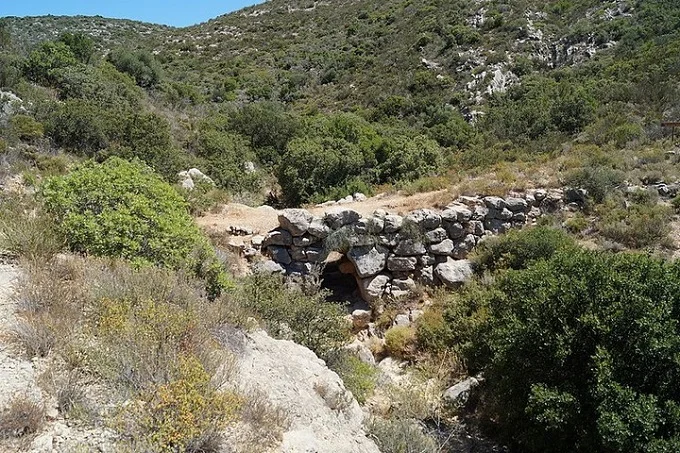The Arkadiko Bridge, along the contemporary route from Tirynthos to Epidavros in the Peloponnese, Greece, is the world’s oldest bridge still in service. It is believed to have been erected about 1300 B.C. during the Greek Bronze Age, making it among the ancient bridges still in operation today.
The arch bridge was constructed using cyclopean masonry, which consisted of limestone boulders, tiny stones, and small tile pieces that were not mortared together. It is 22 meters in length, 5.6 meters in width, and 4 meters in height. There is a little hole for a culvert approximately a meter wide at the foot of the bridge.
Although the approach to the bridge is now covered with vegetation, the highway at the top is approximately 2.5 meters wide, enabling a contemporary automobile to pass easily. Because of the bridge’s design and construction, archaeologists think it was originally built for horse-drawn chariots.
In the Arkadiko region, the Arkadiko Bridge or Kazarma Bridge is one of four known Mycenaean arch bridges. They’re all part of the same Bronze Antiquity path connecting the two cities, and they’re all of comparable design and age.
One of them is the Petrogephyri Petrohefiri Bridge, which is 1 km west of the Arkadiko Bridge and spans the same-named creek. The construction, which is essentially comparable in size and style, has a longer span and a somewhat taller vault. It is still used as a local thoroughfare.
A fifth well-preserved Mycenaean bridge may be found in the surrounding area of Lykotroupi in northern Argolis, where it was formerly part of another important Mycenaean route.
Its proportions are similar to those of the Arkadiko bridge: 5.20 meters wide at the bottom, 2.40 meters at the top, and a little over a meter for the arch span with projections. Curbs remain on the route to guide the fast-moving chariots.
